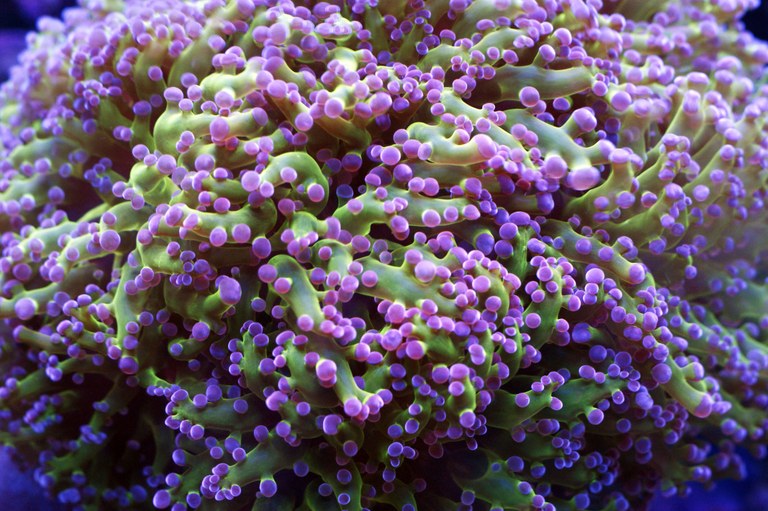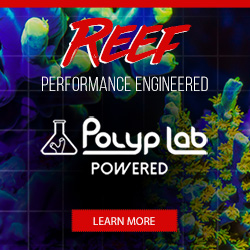The F.U.D. must stop!
We had another nice blog post scheduled to publish today, but I felt compelled to write this op-ed in its place because I still see rampant misconceptions propagating within our hobby and industry about the Endangered Species Act as it pertains to reef fish and corals. Despite excellent, in-depth information written by people who either worked with NOAA/NMFS (National Marine Fisheries Service) or are in direct contact with these federal agencies in charge of the stewardship of marine life, I still see a lot of misreporting by numerous writers (complete with misguided calls to action) seeding misunderstanding amongst our community. Bloggers are doing it. Retailers are doing it. Manufacturers are doing it. “Experts” are doing it. Lobbyists are doing it.
Enough already.
Let me put it as plainly as I can. NOAA/NMFS is NOT our hobby’s enemy. Our hobby is not in peril.
Listen up. NMFS is not interested in hearing from hobbyists about why species should not be listed as Threatened or Endangered simply because of how the ESA may impact the reefkeeping hobby and industry. Nor should they care. The ESA’s sole directive is protecting species that are under threat from either natural and/or anthropogenic pressures. The ESA does not care if you’re able to trade all the colorful marine life you can afford. Nor should it.
More importantly, our hobby is a very small player in a process with multiple stakeholders and multiple contributors. As long as a species is under threat by any contributor, the ESA will seek to protect it. Reefkeepers can be the most conscientious stewards of Species X, but if Species X is under threat by any other pressure – whether it be climate change, commercial fisheries, pollution, habitat destruction, or Justin Bieber – the ESA is going to seek to protect Species X. Period.
When you submit comments saying Species X should not warrant ESA protection because it will impact your hobby, it comes off as unreasonable and selfish and irrelevant (to their directive). Don’t do it. What NMFS wants is data. They want facts, not your opinion … not your personal pleas to extend your ability to trade any animal you wish.
The NMFS public comment period is not a political town hall, popularity contest, or your personal soapbox.
If you are able to refute the petition claims by presenting information to show a species does not warrant ESA protection (or how listing would hurt conservation efforts), I strongly encourage you to do so. If you find fault in the petitioned data, present it. I’d even argue it’s your moral imperative. But for everyone else, please stop flooding NMFS with useless comments that they are not interested in. It’s counterproductive to your own goals.
Here’s another important fact that seems to be sailing above many people’s heads: NMFS/NOAA does not select species (corals, fish, whatever) at random for ESA protection. Species are petitioned by external organizations. NMFS, according to their bylaw, investigates these petitions and makes determinations based on the best available scientific information as to whether any petitioned species warrant protection. It is a VERY long process with a lot of deliberation before final determination. In the vast majority of cases, NMFS rejects the petitions for insufficient or erroneous data.
Officials at NMFS/NOAA read aquarist publications like Advanced Aquarist; and yes, this includes all the unfounded disparaging comments some hobbyist post about them. They are keenly aware of how listing reef species in the ESA will affect our hobby. They have no vested interest in hurting us or any industry. They simply want to protect species under real threat. To suggest that the NMFS is out to ban reef life importation is a masterclass in vilification or ignorance. Or just a general distrust of government or science, which sadly I’m seeing a whole lot of.
We should help the NMFS, not fight them. If you can lodge a scientific argument against any of the petitioned claims, do so. They want to hear about it before they make their decision. If their decision is to list certain species under the ESA, support them. They didn’t arrive at this decision lightly. And really, we promise you can live without a handful of colorful fuzzy twigs in your aquarium. Our priority must be: #1) Reefs, #2) Reefkeeping … not the other way around.
All that said, I am certainly not suggesting there are not people/organizations bent on ending the marine ornamental hobby with fallacious propaganda. There certainly are (Hi, Snorkel Bob and Rene Umberger), so we must remain vigilant. But NOAA/NMFS/ESA is not our enemy. And protecting a few species deemed worthy of protection will not end our hobby.
Stay informed!
Do me this favor. Pretty please. Learn about the process and the science before you contribute your two cents to this issue. Too many ill-conceived opinions are formed because people simply don’t bother to understand the facts.
Read these articles to better understand NMFS and the ESA process:
- Banggai Cardinal Moves Closer to Endangered Species Listing by Ret Talbot (Reef2Rainforest)
- Proposed listing of the Percula clownfish (Amphiprion percula) under the U.S. Endangered Species Act: What it means, and what aquarists need to know (Part 1) by Chris Jury (Advanced Aquarist)
Listing a Species as Threatened or Endangered by the USFWS
And I strongly endorse Ret Talbot’s Good Catch blog for honest, fair, and insightful reporting about the state of sustainable marine life.
For any NMFS official who may read this …
I understand the ESA does not usually make exemptions for protected species. I even understand the merits of the “all or nothing” approach to regulation. But please consider corals, especially Acroporids (as it pertains to 50 CFR Part 223), are an unique animal, which can and has been traded en masse within the hobby via asexual propagation (AKA fragging). This technique was pioneered and refined by reefkeepers and is now in use in coral restoration projects around the world.
Please consider making an exemption for the trade of living Acroporid fragments should any of these species warrant further conservation measures. Simply implementing a size-based trade restriction (e.g. prohibiting the trade of protected Acroporid larger than 2″ in diameter) would suffice to conserve species in the wild while allowing the propagation of threatened species in captivity. This type of policy is also easier to enforce than trying to differentiate similar Acropora sp. species from one another – a task that proves difficult even for scientists under laboratory conditions.
Another option is to prohibit the import of species that warrant additional protection but allow interstate trade. This type of policy would have a similar conservation effect as a no-take policy.
Acroporids are an unique animal (they are fast growing, easy to propagate, and captive-sustainable), and thus are deserving of species-appropriate policies.
Thank you for your consideration.











0 Comments